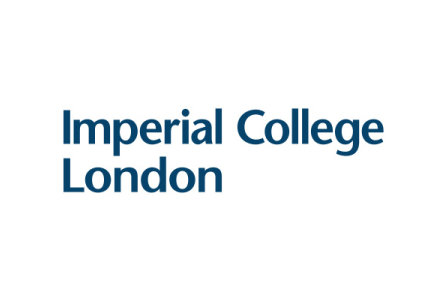Imperial College London: Tony Blair talks ‘future of Britain’ at Imperial
The event today (Thursday) was opened by Professor the Lord Ara Darzi, co-director of Imperial’s Institute of Global Health Innovation (IGHI), who welcomed the former prime minister’s “important” and “timely” speech.
“The REACT programme has been an invaluable source of data for policymakers all over the world.”
Tony Blair
Tony Blair, who served as the UK’s prime minister between 1997 and 2007, opened his speech by recognising Imperial as a global leader in science, engineering, medicine and business, which has played a vital role in the response to the coronavirus pandemic:
“The REACT Programme has become one of the world’s biggest studies of community COVID-19 testing and has been instrumental in tracking the progress of the epidemic here – I know this study has been an invaluable source of data for policymakers all over the world and we should thank all those involved,” he said.
Ara Darzi and Tony Blair
A “triple revolution”
The focus of Tony Blair’s speech was the existence of a “triple revolution” being simultaneously experienced by the country, which “together pose a challenge which is unprecedented in recent history”. These revolutions are Brexit, the technology revolution, and ambitious climate targets.
“Through advances in medical science, the use of data, making systems properly interoperable, and AI we can transform the patient experience.”
Tony Blair
He cited the dramatic shifts required to achieve the power sector’s – and subsequently the country’s – transition to carbon neutrality, such as a doubling of electricity and a quadrupling of renewables in just over a decade. “Show me the plan to do this,” he said.
Tony Blair also highlighted opportunities for technology to overhaul learning and teaching and bring transformational change to the way that healthcare is delivered in the NHS.
“Through advances in medical science, the use of data, making systems properly interoperable, and artificial intelligence, we can transform the patient experience and reduce cost,” Tony Blair said. “Lord Darzi has estimated that the NHS could save £12.5bn a year by use of AI in eliminating routine and administrative tasks alone.”
He emphasised that meeting such ambitious targets and realising the potential of these revolutions requires “radical changes” in Government, its priorities, its policies and its structure.
“It means reorganising fundamentally the way Government works; bringing in the brightest and the best innovators from outside Government; a mobilisation of talent and resource we are nowhere near achieving.”
Britain: a life sciences powerhouse
Tony Blair’s speech was followed by a Q&A with Times columnist Rachel Sylvester, which focused on the current political landscape, addressing COVID-19 challenges, and opportunities ahead of Britain as it emerges from the pandemic.
Tony Blair and Rachel Sylvester
Lord Darzi questioned how the country can be prepared for future pandemics and other threats, such as climate change. Tony Blair responded that with its world-leading life sciences capacity, for example its expertise in the development of mRNA technology, Britain is poised to become a “world centre for pandemic preparation”. But without credible strategies, bold thinking and major reforms, rather than harnessing these opportunities, Britain instead faces slipping “gently into a lower league”.
“Without a radical change in the governing of the country, this is where we’re headed,” he concluded.
“This is the debate Britain needs.”

